Энтони Хоуп - Английский язык с Энтони Хоупом. Узник Зенды / Anthony Hope. The Prisoner Of Zenda
- Название:Английский язык с Энтони Хоупом. Узник Зенды / Anthony Hope. The Prisoner Of Zenda
- Автор:
- Жанр:
- Издательство:Литагент «Восточная книга»1243df63-7956-11e4-82c4-002590591ed2
- Год:2009
- Город:Москва
- ISBN:978-5-478-01181-9
- Рейтинг:
- Избранное:Добавить в избранное
-
Отзывы:
-
Ваша оценка:
Энтони Хоуп - Английский язык с Энтони Хоупом. Узник Зенды / Anthony Hope. The Prisoner Of Zenda краткое содержание
В книге предлагается роман Энтони Хоупа «Узник Зенды», адаптированный (без упрощения текста оригинала) по методу Ильи Франка. Уникальность метода заключается в том, что запоминание слов и выражений происходит за счет их повторяемости, без заучивания и необходимости использовать словарь.
Пособие способствует эффективному освоению языка, может служить дополнением к учебной программе. Предназначено для студентов, для изучающих английский язык самостоятельно, а также для всех интересующихся английской культурой.
Английский язык с Энтони Хоупом. Узник Зенды / Anthony Hope. The Prisoner Of Zenda - читать онлайн бесплатно ознакомительный отрывок
Интервал:
Закладка:

However, I thought I could do no harm by calling; and in this view Fritz supported me with a cordiality that surprised me, until he confessed that he also had his motives for liking a visit to the princess’s house, which motive was no other than a great desire to see the princess’s lady-in-waiting and bosom friend, the Countess Helga von Strofzin.
Etiquette seconded Fritz’s hopes. While I was ushered into the princess’s room, he remained with the countess in the ante-chamber: in spite of the people and servants who were hanging about, I doubt not that they managed a tête-à-tête; but I had no leisure to think of them, for I was playing the most delicate move in all my difficult game. I had to keep the princess devoted to me – and yet indifferent to me: I had to show affection for her – and not feel it. I had to make love for another, and that to a girl who – princess or no princess – was the most beautiful I had ever seen.
Well, I braced myself to the task (итак, я был готов выполнить задачу; to brace oneself to / for a task – приготовиться к выполнению задания; to brace – связывать, скреплять; напрячь / силы, волю /), made no easier by the charming embarrassment with which I was received (/которую/ не облегчало то очаровательное смущение, с которым я был принят; easy – легкий, нетрудный ). How I succeeded in carrying out my programme will appear hereafter (как я преуспел в выполнении своего плана, станет ясно впоследствии; to appear – показываться, появляться; явствовать ).
“You are gaining golden laurels (вы купаетесь в славе: «получаете золотые лавры»; to gain laurels – стяжать славу, прославиться ),” she said. “You are like the prince in Shakespeare who was transformed by becoming king (вы похожи на принца у Шекспира, который изменился, став королем). But I’m forgetting you are King, sire (но я забываю, что вы король, сир).”
“I ask you to speak nothing but what your heart tells you (прошу вас не говорить ничего, кроме того, что вам подсказывает сердце) – and to call me nothing but my name (и звать меня не иначе, как по имени).”
She looked at me for a moment (с минуту она глядела на меня).
“Then I’m glad and proud, Rudolf (в таком случае я рада и счастлива, Рудольф; proud – гордый; испытывающий чувство гордости ),” said she. “Why, as I told you, your very face is changed (ведь, как я вам говорила, даже ваше лицо изменилось).”
I acknowledged the compliment, but I disliked the topic; so I said (я поблагодарил за комплимент, но тема мне не нравилась, поэтому я сказал; to acknowledge – признавать, допускать; выражать признательность / за что-л. /):
“My brother is back, I hear (мой брат вернулся, как я слышал). He made an excursion, didn’t he (он ездил куда-то: «совершал экскурсию», не так ли)?”
“Yes, he is here,” she said, frowning a little (да, он здесь, – ответила она, слегка хмурясь).
“He can’t stay long from Strelsau, it seems,” I observed, smiling (он, кажется, не может долго находиться /вдали/ от Стрелсо). “Well, we are all glad to see him (ну, мы все рады видеть его). The nearer he is, the better (чем он ближе, тем лучше).”

Well, I braced myself to the task, made no easier by the charming embarrassment with which I was received. How I succeeded in carrying out my programme will appear hereafter.
“You are gaining golden laurels,” she said. “You are like the prince in Shakespeare who was transformed by becoming king. But I’m forgetting you are King, sire.”
“I ask you to speak nothing but what your heart tells you – and to call me nothing but my name.”
She looked at me for a moment.
“Then I’m glad and proud, Rudolf,” said she. “Why, as I told you, your very face is changed.”
I acknowledged the compliment, but I disliked the topic; so I said:
“My brother is back, I hear. He made an excursion, didn’t he?”
“Yes, he is here,” she said, frowning a little.
“He can’t stay long from Strelsau, it seems,” I observed, smiling. “Well, we are all glad to see him. The nearer he is, the better.”
The princess glanced at me with a gleam of amusement in her eyes (принцесса взглянула на меня с веселым блеском в глазах; gleam – проблеск; вспышка / веселья, юмора / ; amusement – забава, развлечение ).
“Why, cousin (почему, кузен)? Is it that you can (это потому, что вы можете) —?”
“See better what he’s doing? Perhaps (лучше видеть, чем он занимается? возможно),” said I. “And why are you glad (а чему вы радуетесь)?”
“I didn’t say I was glad,” she answered (я не говорила, что радуюсь, – ответила она).
“Some people say so for you (некоторые люди говорят это за вас).”
“There are many insolent people,” she said, with delightful haughtiness (есть много наглецов, – сказала она с очаровательным высокомерием).
“Possibly you mean that I am one (вы, вероятно, имеете в виду и меня: «что я один /из них/»)?”
“Your Majesty could not be,” she said, curtseying in feigned deference (ваше величество не смогли бы быть /таким/, – сказала она, делая реверанс с притворной почтительностью), but adding, mischievously, after a pause: “Unless, that is (но, помолчав: «после паузы», лукаво добавила, – если не…) – ”
“Well, unless what (ну, если не что)?”
“Unless you tell me that I mind a snap of my fingers (если вы не скажете мне, что меня хоть немного волнует; to mind – беспокоиться, тревожиться; snap of fingers – щелчок пальцами ) where the Duke of Strelsau is (где находится герцог Стрелсо).”
Really, I wished that I had been the King (мне, право, было жаль, что я не король).
“You don’t care where cousin Michael (вам безразлично, где кузен Михаэль) – ”
“Ah, cousin Michael (ах, кузен Михаэль)! I call him the Duke of Strelsau (я называю его герцогом Стрелсо).”

The princess glanced at me with a gleam of amusement in her eyes.
“Why, cousin? Is it that you can —?”
“See better what he’s doing? Perhaps,” said I. “And why are you glad?”
“I didn’t say I was glad,” she answered.
“Some people say so for you.”
“There are many insolent people,” she said, with delightful haughtiness.
“Possibly you mean that I am one?”
“Your Majesty could not be,” she said, curtseying in feigned deference, but adding, mischievously, after a pause: “Unless, that is – ”
“Well, unless what?”
“Unless you tell me that I mind a snap of my fingers where the Duke of Strelsau is.”
Really, I wished that I had been the King.
“You don’t care where cousin Michael – ”
“Ah, cousin Michael! I call him the Duke of Strelsau.”
“You call him Michael when you meet him (вы называете его Михаэлем, когда встречаетесь с ним)?”
“Yes – by the orders of your father (да, согласно повелению: «приказаниям» вашего отца).”
“I see (понимаю). And now by mine (а теперь согласно моему /повелению/)?”
“If those are your orders (если вам так будет угодно: «если такими будут ваши приказания»).”
“Oh, decidedly (о, несомненно; decidedly – решительно; бесспорно, несомненно )! We must all be pleasant to our dear Michael (мы все должны быть любезны с нашим дорогим Михаэлем).”
“You order me to receive his friends, too, I suppose (вы приказываете мне также принимать его друзей, я полагаю)?”
“The Six (Шестерых)?”
“You call them that, too (вы их тоже так называете)?”
“To be in the fashion, I do (называю, чтобы следовать моде). But I order you to receive no one unless you like (но я приказываю вам не принимать никого, если вам /этого/ не хочется; unless – если не, пока не; to like – нравиться, любить; хотеть / в отриц. предложениях /).”
“Except yourself (за исключением вас)?”
“I pray for myself (я прошу за себя; to pray – молиться; просить ). I could not order (я не смог бы приказывать).”
As I spoke, there came a cheer from the street (когда я говорил, с улицы донеслись приветственные возгласы). The princess ran to the window (принцесса подбежала к окну).
“It is he!” she cried (это он, – вскричала она). “It is – the Duke of Strelsau (это герцог Стрелсо)!”

“You call him Michael when you meet him?”
“Yes – by the orders of your father.”
“I see. And now by mine?”
“If those are your orders.”
“Oh, decidedly! We must all be pleasant to our dear Michael.”
“You order me to receive his friends, too, I suppose?”
“The Six?”
“You call them that, too?”
“To be in the fashion, I do. But I order you to receive no one unless you like.”
“Except yourself?”
“I pray for myself. I could not order.”
As I spoke, there came a cheer from the street. The princess ran to the window.
Читать дальшеИнтервал:
Закладка:
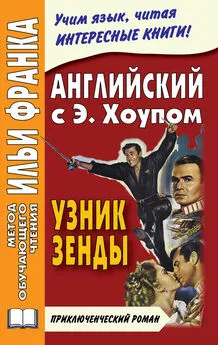
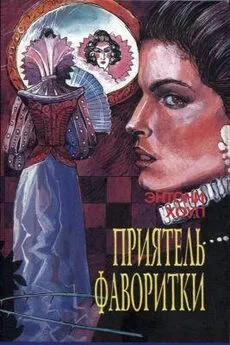
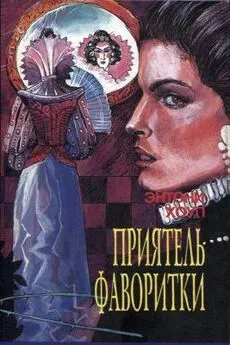
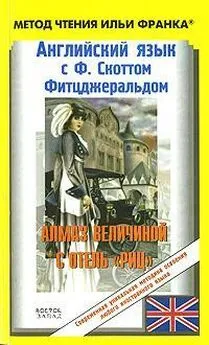
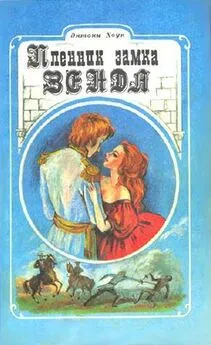
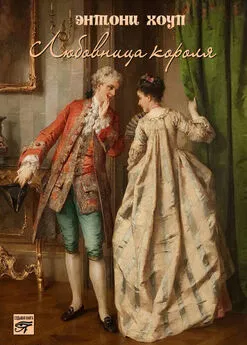
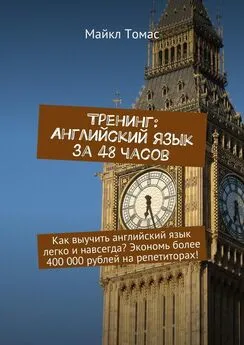
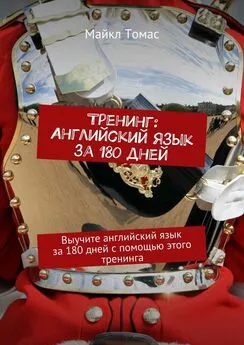
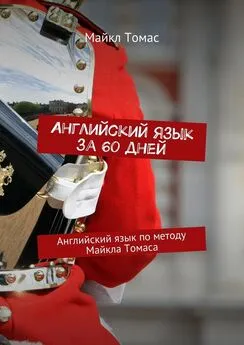
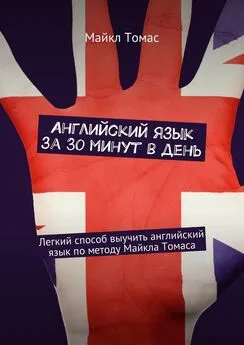
![Энтони Хоуп - Пленник Зенды. Месть Руперта [сборник]](/books/1090466/entoni-houp-plennik-zendy-mest-ruperta-sbornik.webp)